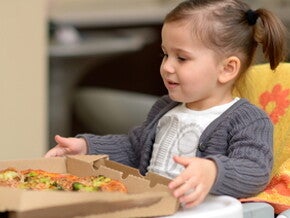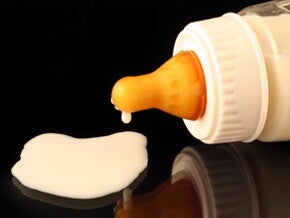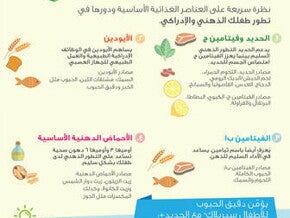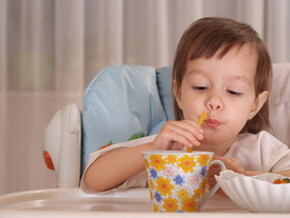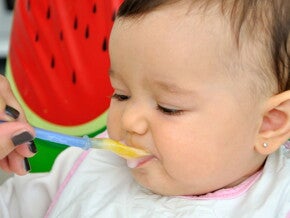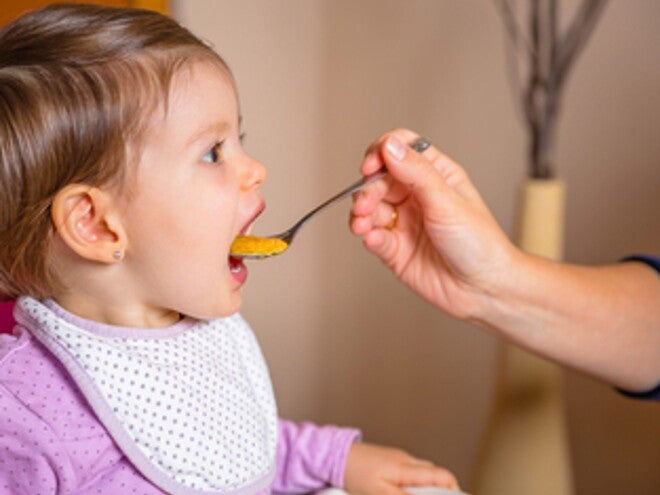
How Many Calories Should Your Toddler Be Eating?
Your Toddler's Required Caloric Intake
IMPORTANT NOTICE: The World Health Organization (WHO) recommends exclusive breastfeeding for the first 6 months and continued breastfeeding for as long as possible. Growing up milks are formulated to meet nutrition needs of healthy young children older than 1 year and should not be fed to infants.
Kids need plenty of calories every day for proper growth and development, and whoever exceeds the recommended daily average of caloric intake without being active, will be more prone to obesity.
Children’s caloric requirements differ according to their age, sex and activity level. As for toddlers between 1 and 3 years old, they need between 1000 and 1400 calories a day, distributed as follows: 1000 to 1200 calories for inactive male toddlers, 1000 to 1400 calories for very active male toddlers, versus 1000 calories for inactive female toddlers and 1000 to 1400 calories for very active female toddlers.
Since children in toddlerhood require all these calories and the vitamins, proteins and other nutrients they carry, let us introduce to you a sample of what your child’s daily diet can be:
Grain Group
85 g of grains a day, equivalent to 3 typical slices of bread or 1 slice of bread with 1/3 cup of breakfast cereals and 1/4 cup of cooked pasta or rice.
(It’s better to choose these foods among whole grain products).
Vegetable group
One daily cup of raw or cooked vegetables, like boiled sweet potatoes and broccoli, etc
Fruit group
One cup of fresh, frozen, canned or dried fruits and/or one cup of fresh fruit juice per day;
Milk and dairy products group
Two cups of low-fat milk or other calcium-rich options like fat-free milk, yogurt and cheese.
Meat and legume group
56.6 g per day; Choices of this group range between 28.3 g of poultry or lean meat with 1 egg or 28.3 g of fish with 1/4 cup of cooked beans.
Oil group
3 teaspoons or less of oil per day;
Along with this comprehensive nutrition plan, avoid serving your child empty calories from snacks high in sugar and fats, that can fill up his stomach and prevent him from eating healthy nutritious foods. Always remember to respect your toddler’s eating instinct and accept his fluctuating appetite every now and then!
Read More: 10 Healthy Snacks For Young Children


